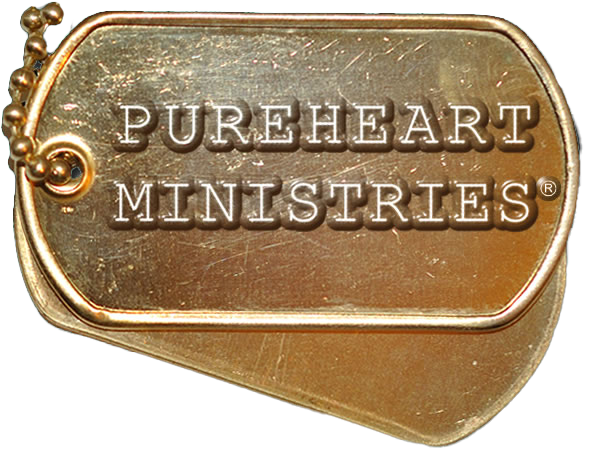Small Group Accountability
How important is accountability in the context of Christian community? When Jesus came to earth, all He did on an institutional level was to start and run a small group. Think about that. This is Jesus we are talking about! We get a traveling small group with grubby fishermen, some rich women, and one guy from the IRS (Jesus loves everyone!). Throw in miracles and exorcisms and some teaching that nobody at the time understood (because it was encrypted)—and that’s it. Nor does it get any better after Pentecost. The teaching is finally understood, but the New Testament epistles are just letters to a bunch of house churches (read “small groups”). Paul spends most of his time—when he isn’t being persecuted—training up men who go out and start more small groups to train more people who start more small groups, etc. In this context of constant community, the disciples give an account to Jesus, Ananias and Sapphira to Peter, Stephen and Philip to the apostles, and Timothy and Silas to Paul—in a chain of small group discipleship that continues to this very day.
Implicit in the Great Commission (Matthew 28:18-20) is the fact that the Messiah’s methods are just as fundamental and binding as His teaching (Make disciples just like I made them, to paraphrase Jesus’s words). I’m merely skimming the surface; go back and see how the disciples time and time again come to Jesus for commendation, rebuke, further instruction, commissioning, impartation, and so on. Time in community and then back on the road, a minimum of two at a time (a small group!), to implement what they are learning.
Note how Paul and Timothy are so close they are like father and son. Paul knows Timothy’s extended family, his strengths and weaknesses as a church leader, and even his physical ailments (Drink a little wine…). They travel together as Paul spiritually mentors his apprentice; Timothy learns how to serve as a missionary church planter by watching Paul. Read Paul’s letters to Timothy—he exhorts, he warns, he instructs, he chides, he encourages, and he expects his spiritual son to live up to his example, and indeed to use the very spiritual gifts imparted through Paul to Timothy. This depth of relationship, this oh-so-practical level of accountability, comes only via spending considerable time together.
In the New Testament, the Christian walk is lived out only in the context of constant accountability in a small group community! I can’t speak for churches in other countries, but the American version of Church has become so radically different from the New Testament model as to be virtually unrecognizable. In the American Church, it’s one meeting a week where one person gets up and does all the talking. And though the sermon is often amazing, there’s not a single shred of accountability anywhere in sight!
Imagine, however, if I were to preach a sermon on evangelism at my church and give everyone the homework assignment of witnessing to 5 people that week. There’s nothing new about that; you and I have heard a thousand sermons on evangelism that encourage witnessing. Here’s where I get radical—brace yourselves—and accountable. In the very next service, I call on people in the congregation before I start my sermon. Bill, did you witness to 5 people this last week? Awesome, Bill, good job. Marco, how about you? You didn’t. Why not? Susan? You led the lady sitting next to you to Christ and brought her to church?! Susan, you are on fire! To make matters even wilder, I would assign positive and negative rewards for doing the homework. Let’s give Bill a standing ovation everyone! Marco, how about you clean all the church bathrooms this week. Susan, you and your husband have won an all-expenses-paid trip to Cancun. Congratulations!
Pureheart counseling sessions are like this church service miniaturized. One of my favorite moments as a Pureheart counselor is when the poor counselee suddenly realizes that I expect him to literally change his behavior—and that I’ll even charge him money or an ice bath if he doesn’t. To make matters worse, I literally ask him every week about this change in behavior, both in removing the negative (masturbation, affairs, gluttony, anger, etc.) and especially in adding the positive (daily devotions, detailed exercise plan, date night with wife, etc.). The look of shock on my counselees’ faces is priceless, especially since it isn’t long before I start seeing astounding changes in my brother’s life (his walk with God, marriage, family, and even career).
Do I see astounding changes in people’s lives because I’m such an amazing counselor? I’m an average counselor at best. I am, however, very good at motivating my brothers by holding them accountable to accomplish the things they’ve always wanted to accomplish!
The majority of men I counsel hate their sexual addiction with a passion. They don’t want to keep hurting their wives or keep testing God with their constant relapsing. It’s the savings account analogy all over again—we all know the financial planner tells the truth about compounding interest. We know that no excuse will cut it on Judgment Day. The desire to please God, the dream of a healthy and happy marriage, the yearning to be free and pure and honest—all this is extremely powerful in my brothers. The spirit is indeed willing! What they have lacked is the know-how, and especially the nitty-gritty accountability that helps them break off long-term negative, sinful habits and replace them with positive, life-changing habits. The Pureheart Process works precisely because it’s founded in the power of accountability in community, as modeled for us by Jesus and the Early Church.
Your Brother in the Battle,
Timothy
Let Pureheart help you. Contact Us Today!
Excerpt taken from Pureheart Ministry’s Basic Training! Stage 1: Operation Purity
Copyright ©2023 Timothy Davis

